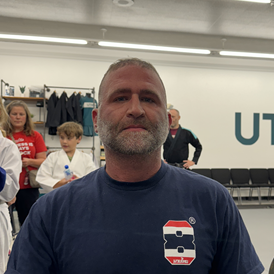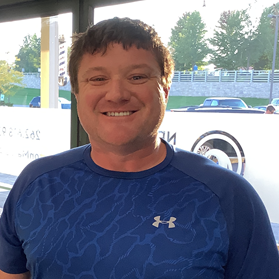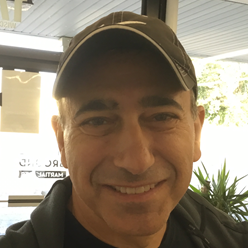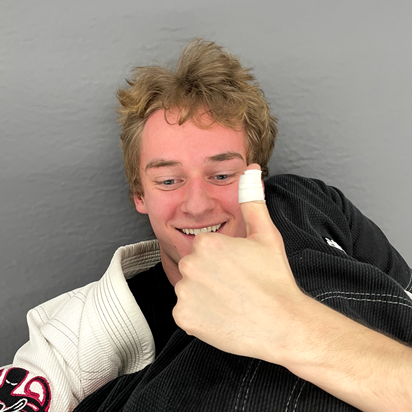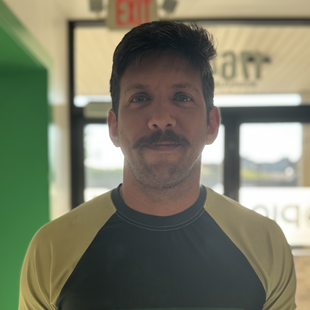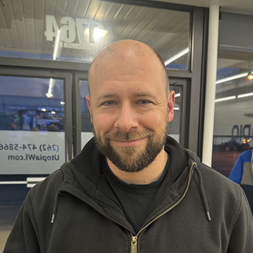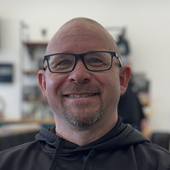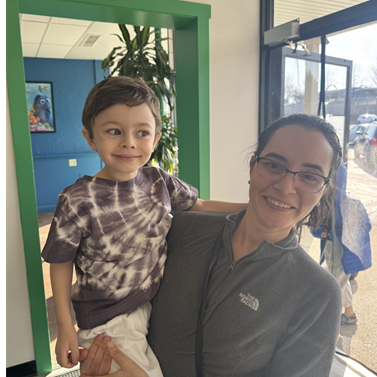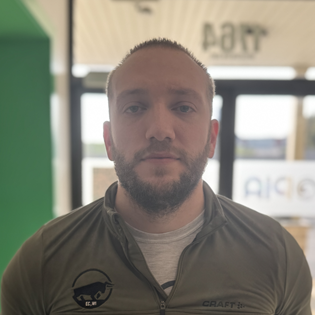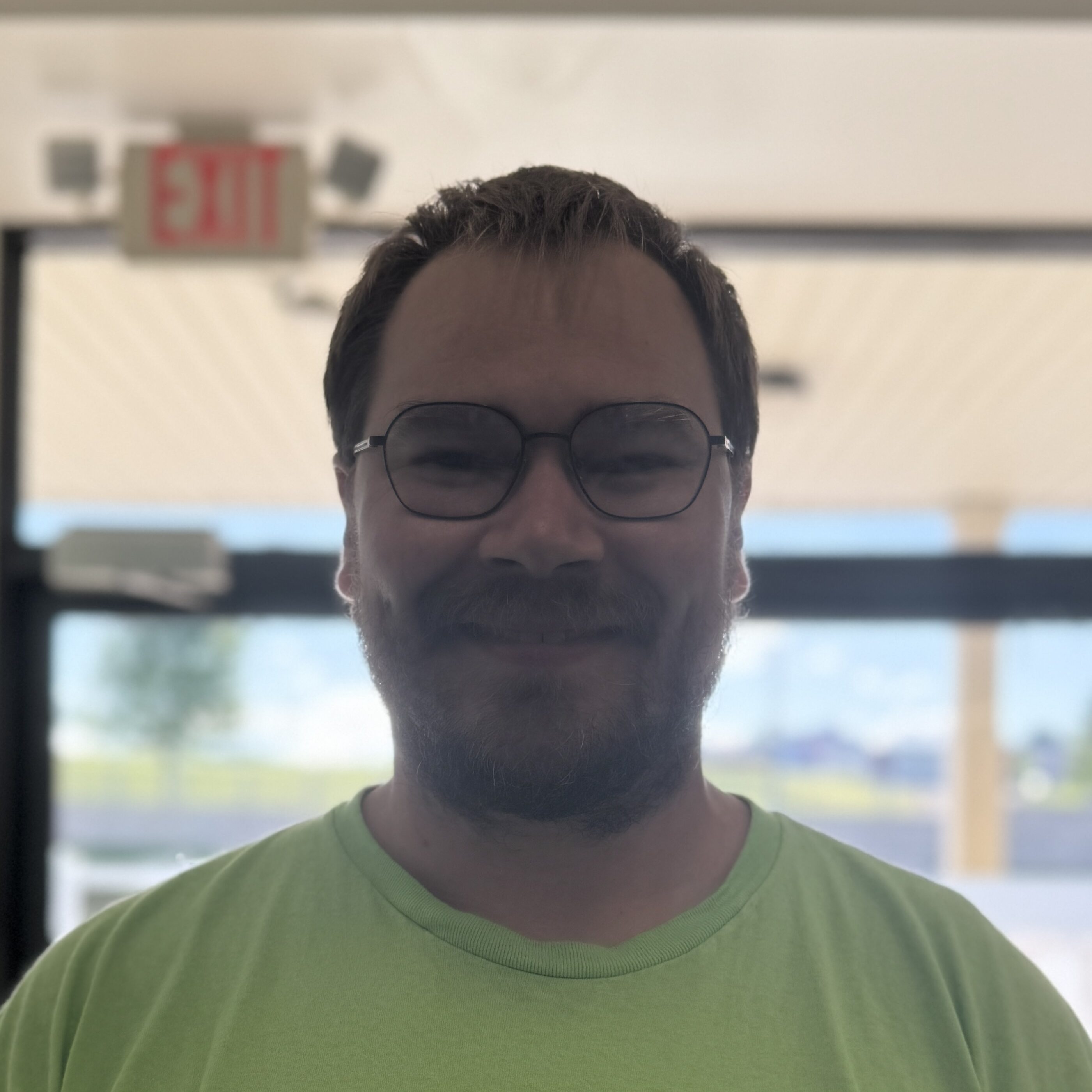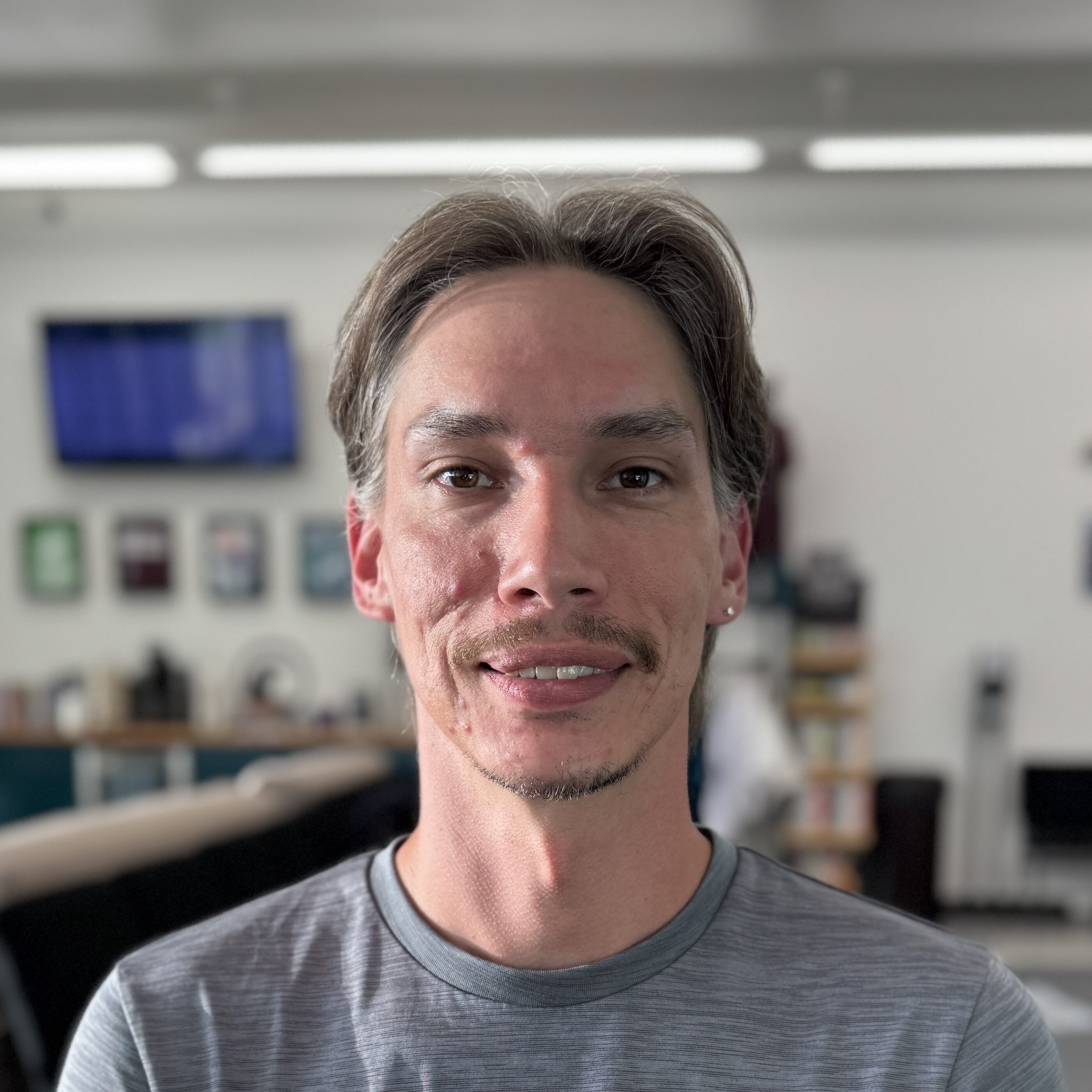In a fast-paced world, few things force you to slow down and confront yourself like Brazilian Jiu-Jitsu. And for Jon Friedland—a black belt, professor, and founder of Neutral Ground—Stoicism isn’t just a philosophy, it’s a practice that meets him on the mat every day.
In this episode of Inside the Wave, we explore the crossover between ancient Stoic thought and the modern experience of training and teaching Jiu-Jitsu. From building resilience and handling failure, to staying calm under pressure, Jon opens up about the life lessons he’s carried from military service to the mats—and how grappling continues to shape his mindset, even decades in.
Key Takeaways
- Stoicism isn’t about shutting off emotion—it’s about navigating it.
- Learning how to lose well can teach you more than any win.
- What you can’t control is just as important as what you can.
- Every roll is a test of awareness, humility, and restraint.
- True leadership often looks like listening, not commanding.
Standout Quotes
“BJJ has a way of showing you who you are, whether you like it or not.”
“Stoicism and Jiu-Jitsu both start with accepting that you’re not always in control.”
“We all get tapped—it’s how you respond that matters.”
Where to Listen
🎧 Stream Episode 14 Now:
Connect with Jon Friedland and Neutral Ground Academy
- Instagram: @jon_friedland
- Website: Neutral Ground Academy
About Utopia
At Utopia, we believe in personal growth through martial arts. Our community supports individuals of all ages, helping them challenge themselves, build resilience, and thrive both on and off the mats. Each episode of Inside the Wave aligns with our values of discipline, mentorship, and community, offering stories that inspire growth in every listener.
Why This Episode Matters
In a world of one-size-fits-all fitness plans, Keith reminds us that real progress comes from tuning into your own body. His approach is both technical and compassionate, showing that you don’t need to be a pro athlete to train with intention. If you’ve ever felt stuck, sore, or unsure how to move forward, this conversation is a must-listen.
Join the Conversation
If you’ve ever felt like Jiu-Jitsu teaches you more about life than anything else—you’re not alone. Jon Friedland’s story is full of perspective for both longtime practitioners and curious newcomers. Tune in to learn how Stoic principles can shift how you show up on the mats, in your relationships, and in everyday challenges.
Transcript
Perry: Welcome to inside the wave podcast here back with Jon Friedland for a second time it is on the on the podcast John is my jiu-jitsu instructor the last episode we did we kind of went over the foundations of jiu-jitsu in Wisconsin, where it came from, how jiu-jitsu developed in Wisconsin. But today, we’re going to be talking about a more personal side of jiu-jitsu, if you want to say. And we’re going to talk about stoicism and how it shows up in jiu-jitsu and how it develops in an individual in jiu-jitsu. But first, before we get started, let’s just give a little non-jiu-jitsu background on you. Because I think most people who know you that listen to this podcast know Jon Friedland, owner of Neutral Ground, several academies in the area, a few affiliates, me included myself. one of the founding godfathers, not the godfather of jiu-jitsu in Wisconsin, but like, you know, one of the first 10, first 10 black Wisconsin native black belts, um, and doing that for a while. But, uh, you went to college, you had a time in the military. You want to talk about kind of just like that personal background really quick.
Jon: Yeah. I guess just out of, just out of high school, I, you know, I signed up at 17 years old for the military and then almost in a, you know, firstborn son of each of our generations since we’ve been in America, that was kind of what they did. And not even necessarily on purpose, like my dad was drafted into Vietnam. But I just, it was that kind of uneasy, kind of almost accidental pressure to go in. combined with, we were broke, you know, and I wanted to go to college and at the time I wanted to be a pediatrician, you know, or something in the medical field, but edging towards that and I needed to go to college and that was expensive and I went through the branches and which one I should go through. I come from a Navy background, but I chose Army because they were going to give me more money for college. And I wanted to be a medic in the Army too, but I was red, green, I am red, green colorblind. So they, for that somehow, it looks like grass. You know, what’s funny is there’s a misconception about the red, green, you know, red and green, but when they get close together, you can’t tell them apart. Yeah. Which is strange. But so I was denied my medic thing. I’m like, well, what’s the, I still want to be on the front doing some kind of service. So I went with infantry, you know, and I did that and then. And that’s actually where I had one of my first good experiences in stoicism, accidentally.
Perry: I think as a lot of people do in the military world, right? We had Vern on the podcast and we talked about that a little bit as well on how that shaped him.
Jon: If stoicism was about handling diversity, I mean, the military puts you right into it. And even all the metaphors for life often has to do with struggles and combat. And when you’re actually in that situation where it’s very likely You just, you pay attention. You’re in that heightened state, like we were saying earlier, where you just. All the information comes in and you’re trying to find a way to deal with it because you can’t screw that up, you know? Um, but yeah, so that’s, and then I got out of the army and then I just, I wanted to get, I wanted nothing else to do with it. I want to get right in the civilian world, jump right in, jumped right into college and then. Gotcha. Degree in civil engineering, civil engineering with environmental water resources emphasis. Yeah. And then which turned into surfing. Yeah. Yeah. Well, it’s like one of those classic like a quarter life crisis where we’re like, yeah, I’m graduating and I see everybody else getting these awesome job offers and, and, and, and they would tell me, I’d say, well, that sounds good. What are you gonna be doing? I’m like, I’m gonna be designing, you know, this, this awesome building and these beams that can hold up whatever. And I’m like, that is interesting in a way. Yeah. And then someone else would say, I’m doing this over here. And I’m like, that’s interesting. Like in a way it just,
Perry: I didn’t, I didn’t feel like I find that interesting, but it’s not something I want to do.
Jon: Yeah.
Perry: Like I would like, I would love to talk to you about it. I wouldn’t love to do that on a daily basis sort of a thing.
Jon: And then anybody that knows the engineering world, it’s like, um, you know, they’re not the more, you know, we’re social creatures, right. And they’re, they’re a little socially off a little bit. It’s kind of hard to. It’s almost like that scene from office space where like I’m the engineer and I’m the people person or whatever. It’s like, you know, as animals, as humans, we’re social creatures or whatever. And I just, I wanted to be more of that than the whole getting down to the numbers and designing the perfect flawless beam in a building. I’d rather be kind of more interactive. I guess, with the real world of humanity and nature itself.
Perry: And then you found jiu-jitsu, just to go back to our last podcast, you found a little bit of jiu-jitsu when you were in the military.
Jon: Yeah. Uh, and that was because, you know, just like everyone else, everyone else’s history, you know, we saw the hoist, Gracie videos and all that of the UFC and some of the instructionals on VHS and. Everybody in, in the, especially in our job of infantry, we’re all, that’s all we do in our spare time is fight. And I started just recollecting and of the videos I saw and watching hoist, Gracie and everything, and just started, then we were fighting and I just, like I said, I think in the last pocket, it was like, I didn’t necessarily win every engagement, but shortly after employing jiu-jitsu in these little combat situations, I stopped losing. And it was, like we were saying earlier, you just become a little bit harder to kill. And when you know you’re just a little, when you have that confidence that you’re a little bit harder to kill, it’s a little bit easier to look towards. doing something forward. You’re not so much in survival mode. Yeah. You can more thrive and kind of open your eyes and look around. And so that was that was the most empowering feeling was just that whole, like, at least I’m not going to. I can’t be killed here. Yeah.
Perry: So fast forward, you start neutral ground, you grow that to a couple locations, hundreds of members. During that, you also were a professional fighter, some side hustle gigs to get through those early years of opening a jiu-jitsu school as many jiu-jitsu school owners have to do, right? Whether it’s like nowadays you hear about the jiu-jitsu school owner that also needs to drive for Uber for a while when they’re starting their school. You know, you had a few of those gigs as well, but now a, you know, one of the largest schools in the Milwaukee area and associations within Wisconsin, but also a father of two humans and how many chickens? Four chickens. Four chickens. What are their names?
Jon: Becky Boo- No, the kids. I’m just kidding. Oh, yeah, the kids. Maximus and Bodhi. But yeah, the chickens. The chickens were named by the children. Becky Boo, Lily, Lady and Princess. Yeah. And they have their little pecking order.
Perry: I see what you did there.
Jon: It’s, well, it’s literally, I think that’s where we get the term pecking order actually. But it’s actually a really cool teaching tool too, just the pecking order and the way the chickens like, for example, like when we talked about like Becky Boo’s on the top of the, either Becky Boo or Lillian on the top, they have the bigger combs and they’re the ones that fluff up their feathers when danger comes around to protect the others. And they’re like, yeah, like if I had to choose which one of these hens I would be, I would choose one of those so I could have, Because they always get to eat first too. First chance at packing, first chance at anything like breeding and all that. Not that we have a rooster, but yet. But then we start talking about, do you want that? Do you want the first food every time? Because that also means you’re the first one that has to go out and run at the danger. Yeah. So I think it’s a good learning lesson for life and responsibility and leadership in general is that, you know, you can’t have all the power. You can’t just desire the power of leadership without the responsibility of leadership. Yeah. The chicken’s a really good lesson for that. is that she’s the one that runs out there, the one that gets all those first pack of the food. She’s the one out there putting it out there to protect the others. For sure.
Perry: And it makes me think of the book Eaters Eat Last. I’ve read it before, but one of the parents at my gym is reading it while kids class is going on. I’m like, wow, that’s the same thing, right?
Jon: Yeah.
Perry: So you run out there to the danger to get the food, but you’re not the first one that eats the food.
Jon: That’s a military thing, too. All of the enlisted, the lower rank people, like myself, we would eat first, and the leaders would always eat last. And that’s where, when I heard about that book, Leaders Eat Last, I was like, that makes sense.
Perry: So let’s talk about stoicism. And I feel like people are learning more and more about what stoicism actually is. But I think if we kind of revert to, you know, probably what we heard growing up, um, you know, so when does it tell you be stoic? Right. And which is essentially like back then was just like, don’t show any emotions.
Jon: Right. Like the, that’s the, one of the biggest misconceptions I think is stoicism is that, um, stiff upper lip, like nothing’s going to bother you. Um, you need to, temper, not temper, but like, just have no emotions. Don’t show emotions if you have them. And I think, in reality, it’s the opposite. I think it’s domestication of emotions, not suppression.
Perry: I was thinking, you know, I was thinking about this in my car ride yesterday, car thoughts. Um, the, the, the, the verbiage, the saying control your emotions, right? Which when we were growing up means don’t show any. Right. Right. But if you actually think about the word control and you were to take it that way, just being control of your emotions, not meaning it’s bad to have one. but to understand and have control over that.
Jon: That’s it. They’re to be used, not to use you. Yes. Emotions are a really, really effective tool. We want emotions. And I think when you can domesticate your emotions, again, instead of suppressing them, you’re empowered to use them as actual proper tools. make something of them. There’s that analogy too of like, you know, you can milk a cow by chasing it around with no fence and just try to get, you’ll get a little milk out of it, right? But if you put a cage around it and treat it nicely and inspect it and look at it and understand the cow, you’ll get a lot more milk. You’ll get a lot more out of your emotions. Like you would get milk out of a cow.
Perry: So stoicism has a few core principles. I know there’s official ones, but a lot of them are around emotional control, resilience, understanding what you can and can’t control. That’s it. I think that one right there. Yeah. And actually taking action on it, right?
Jon: Yes. I think that’d be the second step, right? I think the first step in, and you know, Stoicism is not unique with this, right? A lot of the religions and lots of other philosophies, but your first question of the day of your life is, you know, nowadays they call it the dichotomy of control. And some will even expand it to trichotomy of control.
Perry: Okay. Tell me more about that. I don’t think I’ve heard that one.
Jon: The dichotomy of control would be like, just literally looking like, okay, here’s the 10 things that are worrying me. or could worry me. How many of them are in my control? And that sounds easy. And how many are not? And the double-edged sword is most things in your life are completely outside your control. But that’s also good news because that’s the less you have to worry about, which is your second part of the homework, right? So first, you know what’s in your control and what’s not. And whatever’s not in your control, your next step is to be then accept it. Let it be. Let it be. And especially in a time now where we’re exposed to so many things, social media, etc. Let us be exposed to so many things outside our control. It’s tempting to kind of want to… hold it to a higher value than it should be. And then the second, you know, part of the second part after understanding what’s in your control or not is, yeah, there is some things that are in your control. It’s very little, which kind of sucks, right? But you have to own that.
Perry: Yeah.
Jon: That’s the hard part. We don’t even want to own that one sliver, that one percent of life that we control. We’d rather worry about everything else we can’t control and then we’re ineffective in leading our life.
Perry: Which leads to the victim mentality.
Jon: The victims live in the world of trying to control the uncontrollable.
Perry: Yeah.
Jon: Right? And then so like when we have, when we know what we can control, you know, our thoughts and our actions and our responses, not necessarily our reactions, but our responses, that’s it. That I think life mastery is about stimulus and response and what you do in that time between.
Perry: Yeah. Even, you know, our place in the world, meaning You know, if I have, and I’m going to use like the kid scenario, right? If I have a friendship circle that is making bad decisions, I can’t control their decisions, but I can control my space with that group.
Jon: Right. And choose your friends, right? Yeah. You become the people you hang out with most, right? So you, you know, like. There’s also an obligation, if you are a truly centered person, to see these people that are not necessarily in the best place and to try to pick them up. But to just a degree, most of it needs to be uplifting. We need to be uplifting each other, rising ship, rising tide. And I think a big part of choosing, getting successful outputs is choosing your inputs. And one of your biggest inputs are the people you hang out with.
Perry: How did you start? When did you first recognize, was there a moment that stoicism has shown up in jiu-jitsu or MMA, specific to the martial art?
Jon: Yeah, I mean, they just go hand in hand. When I, with the resurgence of this ancient philosophy, right? It’s pretty common now. And I can tell it’s common because even though I’ve been reading about it for many years now, I hear it in other passing conversations.
Perry: I mean, there’s even jiu-jitsu gyms that are called like stoic jiu-jitsu.
Jon: Yeah, I love it. I love it. And because it’s becoming so, and I think it’s just inevitable. And I think a lot of our civilization, Western civilization has lost philosophy in general, rules of life. And, you know, it back in the day was it was religion. We all had the same rules to live under or or any number of ways of kind of having everybody on the same page, putting something above yourself. And I love that the Stoicism is making its reappearance. And it just, it goes right along with martial arts because martial arts is, you know, it’s, it’s life practice. You, you know, just look at an individual match. It’s just like you start, you don’t, you don’t even know who you start with and you end with a, with a tap and everything. So your death, you know, I like to call it, you just do death practice. Right. Yep. And it’s like, you have the ups and downs and the adversity and a plan go wrong and a plan go right by accident or on purpose. if stoicism is teaching us to live a life and we have many individual lives lived on the mats, it just makes sense that they would coincide with each other.
Perry: Yeah. I, to me, jiu-jitsu is one of the, you know, if we were to practice, not practice as an application, but practice as develop our skill at building our stoicism in one five minute match. How many opportunities do you get to practice recognizing what’s in control, what’s not in control, uh, how to handle your emotions and take control of your emotions, the resilience within a five minute match that’s needed.
Jon: Yeah. What am I made of? What is nature asking of me right now? Is it patience because I have the choke in, but my grip is burning out? Is it courage? You know, he’s going to have an answer for this, but I’m going to go for it anyway. Is it… Also, I may be a little bit too banged up. I need to pull back on this today or this match or this particular person or that, you know, like there’s whatever adversity is thrown at us. I think on the mats, on the mats is just so amplified. It’s just life, but on the mat, it’s just, it’s just so condensed and amplified. We need to ask what helps me is I ask myself, what is being asked of me right now? Is it just patience? Is it be brave, go forward? Uh, or sometimes be brave, stay back. Yeah. You know, there’s, there’s so many questions that you have to answer. They don’t even know you’re answering. You don’t even know you’re being asked, but when you are more, if you start the day with a kind of a stoic mindset, it just flows naturally. That’s like, this is what’s being asked me. This is what’s being asked me. And eventually it just flows.
Perry: And I love jiu-jitsu because you’re. literally getting opportunities at any second to practice this. I’m thinking back to a match that one of my students had. The kid is super good, very talented kid, was fighting up two age groups. He’s 10, he’s fighting a 13-year-old or something like that. The kids had judo stud, jiu-jitsu stud, but the kid he was going against had these grips on him that my student couldn’t throw him. And you can see like every 30 seconds getting more frustrated, more frustrated, more frustrated. And then when you get more frustrated, you start going for, you know, you start playing out of anger versus out of intelligence, right? Just a great opportunity and lesson learned to, you know, I wanted to, in that moment, looking back on it, be like, control your emotions. Not saying, hey, go, go emotionless, but use those for something you can do, right? Use it to play smarter. Use it to want to win more. Use it to reflect on all of the training that you’ve done came up to this moment. Like what tools do you have to display?
Jon: Yeah. Instead of just the, woe is me. I can’t break this grip. It’s celebrating it. Like I’m nicely done. Okay. Whoever set me up in this, this is a nice puzzle.
Perry: Yeah. Gave me a great opportunity to learn. Yeah.
Jon: And that’s how it should be, right? I think a lot of times we see something coming at us, like it’s happening at us, but like the cliche, right? It’s happening for us. It’s information. Them having grips on you that are unbreakable is at least something to work with. This is a given. There’s not many givens in a match or in life. This person will not let go. And I’ve tried to get, so this is a given. You know, creativity is bred not with unlimited options, but with limited options, right? You’ve limited all everything I had going on, assuming I could break these grips. I can’t break these grips right now. So at least then I’m going to be creative. Now, this is this is asking for me to it narrows your options, which almost makes your options easier. Your choice is easier to make. Yeah. And I think that’s even in regular art. Right. If I said, OK, I’m going to make an art studio for you, it’s going to be big, huge. And you have everything at your disposal. You’re not going to come up with anything. Anything good. But if I say, I give you four pieces of straw, two chickens and an egg, now that’s art. You’re going to make something of it because I’ve limited all your options. And I think instead of limiting your beliefs to what you can do based on that, look at it as like, great, this is information. This is perfect. This is finally a given. Now I can, now I can move. Now I can, now I can, I can make my move. The choice is on me. I can respond. I can just, you know, his initial reaction, right? His emotional reaction was, I don’t like this. This isn’t going the way according to plan, but his response, once he acknowledges those emotions is what matters. The response is what matters, right? So how am I going to take this as a given in the problem and solve it or not solve it and take in the data so I can solve it next time.
Perry: Right. I love it. And as part of this, one thing that I’ve heard people say so many times about you, about myself, is how much this concept of stoicism and being applied to jiu-jitsu creates humility and humbleness.
Jon: I think with all the virtues of living a good life, Some say that humility is the mother of all other virtues. Others will disagree and say it’s courage or wisdom. But I think if you’re not going to decide to be humble, life will do it to you. So it’s like the dog in the cart is a popular stoic analogy, right? There’s a cart driving or going along and it’s pulling a dog behind it. Two dogs, we’ll say, in this case, just to make it more relevant. And one dog is just trotting along the cart. The other one’s dragging its feet like this. I don’t want to be on this cart. I don’t want to be on this cart. Well, the cart’s happening and you can’t move the cart. You can’t move the rope and you can’t move the fact that you’re moving forward. So instead of resisting that, go with it. And the happy little dog goes with fate. And I think that’s a lot of how we need to look at handling the things that are not in our control. Yeah. You can’t control the cart. There’s things moving in the universe that we can’t even begin to fathom. Most of it’s outside our control. And even in our world, like we don’t know what’s, you know, we can’t control what’s going on in Russia or Africa or Asia right now. But when’s the last time you looked, checked on your neighbor? You know, the things that are in Asia, it’s like you can make a big difference with your tiny ripples. where you do have control instead of spending all your precious energy on the things that aren’t.
Perry: Now, I know you have a lot of practice at this, uh, proportionally. Um, you know, you, you spent, you’ve been in a lot of challenging situations, both, you know, growing up military jiu-jitsu career, fight career, even the micro jiu-jitsu matches. How do you, Keep your ego in check when frustration hits. And I think we get better at having frustration hit more often, like letting less things frustrate us. Right. But I don’t want to say no matter what, because I don’t like absolutes. No. It happens. So what do you do when frustration hits?
Jon: I just try to ask one more one more why, you know, like, let’s say if I’m feeling angry, that is something, you know, angry is just a mask that fear wears. Yeah. So like, what am I afraid of? What? Why? Why would that make me angry? Well, because I’m afraid of what will look looking dumb, getting tapped out. Um, just failing, you know, whatever, depending on how you define failure. Right. And I just, just ask one more step. And then I was like, this is silly.
Perry: Have you been getting better at recognizing it in the moment and not just recognizing it, but actually dealing with it in the moment? Cause I still have. Occasionally I do. Right. I get frustrated. I understand I’m getting frustrated and I have the time to handle it, but there’s also days where like the next day I’m like, ah, could I handle that so much fucking better?
Jon: What you just hit on something. So like, yeah, you, you, you know, you screwed up. You just, man, I could have said this better. I could have said nothing better, but the, the, and I think one of the, one of the keys to you reflect the next day you reflected on it, you, you took a mistake as information and
Perry: Did something with it.
Jon: Did something with it for the future.
Perry: Controlled the controllable, maybe not in the moment, but.
Jon: Right. Which now that the moment has passed, it’s no longer in your control. So you’ve already delegated that to the uncontrollables. And now what can I do with this? It is still information. Like every failure is it from, and you use that to move on to the next thing. And. are able to pass it on to me like you just did and everyone else that that I that’s an argument for failing being more productive than a success, right? Because it hurts. We’re allowed to feel pain. You know, we’re just not allowed to bitch about it.
Perry: Yeah, well, it’s like lifting weights, right? Like, I don’t say with like, without a little pain, you’re not going to grow as fast, right? And literally muscle growth is like muscle, small micro muscle tears, right?
Jon: And like, you need that. And when life was a lot rougher for humanity, it was much more of the suffering. So we took any solace, any comfort we could find, like just laying in the sun or pigging out on this fresh kill. But we chased comfort. We’re designed to chase comfort because it was so rare to balance out that life, right? and our lives have become so, in some ways, easier, we need to do the opposite. We need to change, chase discomfort. Because we need both. You can’t just live a life of eternal suffering, but you can’t live in eternal comfort either. And so, because we’re so comfortable right now, climate controlled, we’re well fed, which we can’t say of a lot, we can’t say of most of the rest of the world, we need to find struggle. And so when we don’t have struggle, you see this in like personal relationships too. You see a great relationship going along and everything’s going good. They’ll pick a reason to fight. Yeah, it is because with the person they trust most. Yeah. So it’s like we need it. So that’s why it’s and then you’ll see in relationships, you know, a couple will trade with us. And one of them’s either being lazy at home or they’re just busy with stuff. And the one spouse will say to the other, like, you need to go train, go get this fight out. You need to struggle through something. Yeah. And then they come back and everything’s set. Yeah. I think. We’re in the too far of the extreme where we just, we don’t want to suffer, but whether we want it or not, we need it. We need to suffer. Suffer builds us. You can’t temper steel without impact. You’ve got to do something.
Perry: It’s like the jiu-jitsu lesson of, you know, if you don’t know where to start, start in the worst position.
Jon: Yeah, on a technical sense, right? Yeah. Hey, do you wanna start on top? Do you wanna start on top? Just sink it in. Put me on the bottom and just start running on me and see if I can come up with something. No matter what position you’re in, you’re going to have to deal with it.
Perry: So it’s the same as like advice, like eat the frog, like eat the frog, like do the, do the hard thing. And if you do the hard thing enough, the stuff that’s not as hard will seem easy.
Jon: That’s right. That’s what I use with my kids all the time. When they, they have some tasks at school, they got to do or at home, you know, they got the one that they. And I see value in both strategies. Do you do all the little easy things?
Perry: Do you build momentum to get to that hard thing? Or do you do some of that hard thing out the front so everything else is easier?
Jon: And both of them have the same result. Getting it done. you should train yourself or try to train yourself. So like, get enough sleep, eat well enough so that when you wake up in the morning, you can smash the frog.
Perry: Yeah.
Jon: And then everything else that’s going to continually compound. Let those Uh, come last.
Perry: Yeah. I had a student that messaged me this morning. I rolled with him yesterday at blue belt. Um, super good. I mean, he’s got a great jiu-jitsu game. Uh, he’s at like a lot, one of those long lanky guys. He’s gonna know who I’m talking about, but like those long lanky guys, when they learn how to, how to use that to their advantage, it’s, it’s a pain in the ass. Um, But he’s really good at bottom, very good at bottom. He’s got it very comfortable at bottom. And we have some tournaments coming up. So I was like, I’m going to play bottom today. I was like, you get to play on top. And he messaged me this morning. He’s like, hey, man, I’m sorry for the shit roll last night. And I was like, it wasn’t a shit role. Like you had a great role. And it was great because I was my entire point of that goal was to put you in challenging positions, not challenging as in like, I’m crushing you, but puzzles that you don’t normally have to play, and almost playing his style against him. And I was like, those are going to be some of your best roles for learning those ones that are challenging. Now the shit ones are the ones where you just get kind of stuck for ever. And you’re like, uh, and you don’t try anything.
Jon: Right.
Perry: But he was moving. I can see it like in his eyes doing all of these puzzles, puzzle solving. Like it was, to me, it was an awesome role.
Jon: You changed his state. He’s used to the path. Yeah. And you, you knocked him off the path and he’s got to find either his way back to the path or. plays a new one.
Perry: But it ends up being challenging. I think this is where you end up getting jiu-jitsu, the art of being comfortable in uncomfortable situations, right? This isn’t physically uncomfortable. It’s technically uncomfortable in any maybe emotionally uncomfortable. Yeah.
Jon: Right. We can’t have one without the others. Right. So you could be in a physically uncomfortable position, but be emotionally fine, spiritually set. You know, like, but you, you, it sounds like you shook them up in an emotional and technical, like I, I know this math. I just haven’t done it in a while.
Perry: Yeah.
Jon: Or, or it’s completely new to me. I’m going to figure it out. And I’m sure knowing you, you, you gave him just enough that he could, could figure it out. Yeah. So he has data to take back to the lab.
Perry: Yeah.
Jon: Yeah.
Perry: Those are some of my favorite roles. And I do it with you a lot is like, you’ll beat me on something. And then I’ll try to go in that same role, go back to that exact same spot that you beat me in. And I’m like, do it again. I want to know what you did because I didn’t catch it the first time. That’s the way. And that’s like, do it again. And it’s like, keep beating me, please. So I can finally figure out what you’re doing.
Jon: In such a low rep activity where, you know, no two roles are the same. Yeah. Any chance you get. to go down a path more than once should be taken. Yeah. in balance with never going on the same path twice. So like, and I just wrote about this recently too, where, you know, there’s some classes that are smaller, you got six, eight, 10 people or whatever, you get to roll the same people over and over again. That’s a huge gift. Like, cause if you and I were to roll right now, 10 times a roll, they would probably go about the same with little nuances along the way. And that’s where our real creative, opportunities lie is get some high reps of the same path where that path and notice more details along that path than you ever would. If it was a different walk through the woods, each time balancing that with the normal bangers or 40 or 50 people in a class where you’re never going to, you can roll alongside somebody, roll near them for months at a time and never roll with them. Every single role is different. There’s about, there’s good in that too. You need to think on the fly constantly in those classes. You’re never going to notice the details, the trees in the forest, but once you go back to the small scale classes, you really can see some really intricate details. I think having both, you need to have the meta and the micro.
Perry: I feel like I got. Good at jiu-jitsu quick. One, because I started when I was in college and I had very low commitments and I made my entire college schedule around doing jiu-jitsu. But beyond the fact that I could just make my schedule whatever I wanted, I had the opportunity, I just think the golden opportunity to do your, it was like a 10 a.m. class and 7 p.m. class. And it was that exact same thing. I could do a two-a-day and I can get those smaller classes in, in a more intimate setting, roll multiple times for the same people, and work on those really small, I hate saying the word micro in jiu-jitsu, because it’s like a whole thing, micro techniques, but like those small games, those small battles. And then in the evening, I’ll go on to these, like this vast, huge variety.
Jon: Bloodbath, yeah.
Perry: Of rolls at the same time. That was huge. We get people all the time that are like, oh, I just want to come to the class with 30 people. I’m like, there’s so much value in going to a class with 10 people. And opposite, too. Don’t just get comfortable with those 10 people.
Jon: Go to those classes with the 30 people. So you were presented with an opportunity. You used the liberating schedule. It’s, it’s not the opportunity that gave you the skillset you acquired from it. It was a discipline. You had to take advantage of the opportunity you had. You saw that you saw the, there’s lots of people that have opportunity right in front of them, but they don’t have the discipline to take advantage of it.
Perry: I mean, we all probably, I mean, I guarantee there’s opportunities in front of me right now that I could go take. And I, I do think that’s a challenge, right?
Jon: But, but there’s also a discipline in knowing doubt, you know, saying no to opportunities, right? Oh yeah. And especially as you come further along, you have more and more opportunities sometimes, but you know, that’s more and more costs too on your, on your time and energy. And so I think, you know, the, the secret is like noticing opportunity, understanding if it’s something worth doing and then having the discipline to do it. Yeah. And I think. We’ll have all the opportunity in the world and we’ll make an excuse why we won’t. And then when the opportunity is taken, we’ll make an excuse. That’s that’s now our excuse, instead of doing the best you can. With what you have, I just I mentioned this a little bit in Dr. Gling’s black belt thing, it’s black tie is like he, you know, if he’s injured, he finds a way to cross train something else to make it work. Yeah. If if he’s. If his schedule was real loose in the beginning, he was doing two days for years. And then even into his professional life, he was able to then knowing that, you know, he’s getting married. That’s that’s something else. That’s another opportunity.
Perry: I think about the injured student that like. hurts their elbow. And you have two options. You have the person that’s like, I’m just going to take my training off. Or you have that person that’s like, I’m going to get my legs as yoked as possible while my arm doesn’t work.
Jon: Yeah. I mean, how much do you need your arms to work triangles, drilling them? So just it’s OK to have reasons to not do something, but not excuses. And I guess I don’t know how to define the difference, but you get what I’m saying.
Perry: My half guard, specifically half guard with a butterfly hook developed because I tore my meniscus.
Jon: Perfect.
Perry: Like closing my guard was hard, just keeping my leg and half guard hurt. But I found that if I do a half guard with the butterfly hook, I can kind of relieve pressure on my knee and still be in control of my opponent. I wouldn’t, I might’ve developed my game through some, developed that game through some other channel. But that injury gave me that opportunity to learn that position and I still use it today.
Jon: What did they say? Adversity breeds adventure, right? So I think we need to look at stuff like that, what appears to be something stunts in your way and then… Back to Stoicis, you know, the obstacle becomes the way. The impediment to action advances action. What gets in the way becomes the way. So like, if you can’t use that leg, back to the creativity, right? If you can’t use that leg the way you want to, it doesn’t mean you can’t use that leg. Or even if it does mean you can’t use it, it doesn’t mean you can’t use the rest of your resources. Look at the cards in your hand, now be creative with the play. And I think, We run into resistance and we just go back. A lot of us, we just run into resistance and go back. You can go through, you can go under, you can negotiate with the rock. There’s other ways through.
Perry: I mean, that’s the entire concept of developing resilience.
Jon: I think so.
Perry: And I don’t remember what kid’s book it is. You might… remember, but it’s a book about like the kids that grow up to be the most successful are the ones that have learned to build resilience. It’s like one of the top characteristics of is a grit by Duckworth.
Jon: Yes. Angela Duckworth, I think, is yes, that is great. It’s great because. You know, I this is a speaking of mantras, right, I
Perry: I was actually gonna ask you what your stoic mantras are.
Jon: I have a ton, but, and they’re mostly position specific, position in life, position on the mats. But I tell them, almost like a quiz, is it better to be strong or tough? And then they’re like, they’re like tough. And I’m like, why? And they’re like, cause it’s my choice. Whereas, you know, strength can come and go. Right. Sure. And I think I say it to myself too, like, I don’t need, Tough is a mindset. Strong is an ability to, I guess, talk to the strength and conditioning people, but it’s strong. You can get it bigger, you can get it smaller. It’s much more, much more, because it traverses. You can be spiritually tough, emotionally tough, physically tough. And I’d rather judge you on your choices than what nature gave you.
Perry: What are some of the stoic mantras that you fall back to on a regular basis or that are applicable or important or helpful to you at this exact moment in your life?
Jon: So, I mean, I’m always, so like, uh, people that pray, right. They, they say the same, a lot of times they say the same prayer over and over again. And it’s not because they forgot the words. They need the reminder. They need the constant reminder. And they’ll say several different prayers, right? They have their dinner ones.
Perry: They have their, um, constant reminder is literally why I have the word abracadabra tapped on my arm.
Jon: Okay. There you go.
Perry: Which means with my words, I create.
Jon: Well, there’s some, that’s a whole nother topic too, right? You know, your, your thoughts turn into actions. Like you should have, and then stoicism starts with the, with the clean thoughts, turn into clean words, turn into clean, clean actions. Right. Um, I went straight where we go here.
Perry: Uh, mantras that you lean into.
Jon: Oh, uh, yeah. So it’s, it really is condition specific, but I have kind of a Rolodex in my head of, of what would apply in that situation. So like, for example, like one of them is always in my head is a persistent resist. And there was a famous stoic Epictetus who was a huge influence on Marcus Aurelius. Most people have heard of Marcus Aurelius. And he always said, persist and resist. So like, if it’s the thing to do, that you feel is right to do, persist, right? And everything that’s gonna get in the way of that, you need to resist. All the temptations and the passions and all that. So persist and resist is a, lately. Yeah.
Perry: And that goes to that ability to say no to… the good, the bad, the other opportunities, the things that are gonna stray you off your path.
Jon: We talked about this in the last time too, where one of the biggest leaps in my emotional and spiritual development, and probably physically too, is just the ability to say no. Like successful people know how to say yes. Very successful people know how to say no. You need to, especially if you’re young, not even in age, but young in whatever endeavor you’re in, say yes, say yes to everything, say yes to everything. get as much exposure, roll with everybody, roll as many- Try it. Yeah. And then you start calculating more. And the more you seize opportunities in the yes phase, the more opportunities can be presented to you. And that’s where you have to start.
Perry: Yeah. It’s like the tree, right? With like, you have the trunk and then you go into all of these branches. You want to start dabbling in all those branches and eventually you start, you know, you find your path.
Jon: You fall out of the tree if you go down every branch, you have to choose the ones, right? Yeah. And the same is like planting seeds in a garden, right? You always plant more than you need. You’ve got to pull the ones that get in the way because they almost act like weeds. Yeah. You know, it’s like. But say yes with the seeds, get it out there, pay attention to anything anyone has to say to you, listen, take in that data, any experience you have a chance to take, for the most part, just take it, and at worst, regret it later, using it as fuel for something else to blossom later. And then as now, now, instead of seizing the few opportunities you had, you can have lots of opportunities. And now you’ve got to just feel that it’s almost like the belts in jiu-jitsu. As you get higher up in jiu-jitsu, you’re more working as a filter than brand new exposure. Right. You see how it fits in the mental models on the mats.
Perry: I think the white belt that wants to try every single move they see on Instagram and then their game is just like all over the place. It’s exciting to watch and it’s exciting to do too sometimes. Right. Like I think it’s great every once in a while. Right. We need to. go back to just playing, right? Like, but if you’re playing all the time, it’s hard to also develop.
Jon: I agree.
Perry: And I shouldn’t say playing as in having a playful jiu-jitsu game, like dabbling. Like if you dabble everywhere, all of the time, it’s hard to develop a cohesive game, but you build up, you get something from that too, right? You build up understanding on how things work and other positions and things like that. You know, you have your, You’re generalist and then you have your, uh, what’s, what’s the other specialist.
Jon: Right.
Perry: And eventually those. Uh, you become a specialist in a lot of areas.
Jon: And you, you kind of touched on it for a second there where it was like, you know, you got this phase of playing and then we’re talking about the phase of kind of filtering through, but you know, the seasons don’t stop in winter. They start to get in the spring. Not only is it okay to go back and play, it’s necessary for our cycle, right? We need to go back and go back to the spring where everything’s brand new to you again. And then, you know, the, the, the summer and go through the season. everything, what has happened before will happen again. And it’s happening right now. This is just a season. And what tools are you going to use in this season to get the most out of it before the next season comes? Because it’s coming no matter what.
Perry: But there’s, man, there’s also so much power. And I’m going to go back to Jiu Jitsu on this, to doing something until it gets boring. Because boring also gives you the opportunity to be like, how can I make the same thing playful again?
Jon: And you’ll never get there if you’re not going through the, through the steps to get there, which is like exploration, fine tuning, specialization. And then, and then it’s almost all the same lines of, you know, some people say like, and then, and then like, then it becomes boring.
Perry: And then that’s where innovation starts.
Jon: Yeah, exactly. It’s like, same as I, uh, children at play. Like, you know, a lot of times we don’t like to see kids. They’re really irritating. They’re annoying. They have nothing to do. So you stick a tablet in front of them or something. Yeah. Give them just two more minutes of boredom and they’ll come up with the best game ever. because they’re bored. Boredom is almost gone today. Yeah. Gone. Whereas all the smartest people in the past, they had lots of time to think about stuff, sitting under an apple tree or whatever, you know.
Perry: I was listening to, um, He’s the guy that owns Renaissance periodization that one of the founders Mike it’s real. He’s a big yoked lifter, dude Residence periodization is like one of the the top Nutrition and lifting programs to get just super strong He’s also he just got his black belt in jiu-jitsu under Josh Vogel out in like Philadelphia. You might have heard of him before But he talks about Recovery and he’s like The best way to recover is to do nothing until you get that insane itch of boredom where you have to do something. And it’s like, then you’re recovered.
Jon: You’re totally full.
Perry: Yeah, just like like you’re full of recovery. You can’t fill the gas tank anymore. It’s not that it’s overflowing. It’s about to explode to empty it, right? Like, I like that. I’m gonna take that. That’s how you know when you’re recovered. And if you look at like boredom as that, Because that’s sometimes a challenge, because I used to just not let myself get that way ever, which leads to burnout. But now, you know, every once in a while, I get to that level. And it’s likely on my couch playing video games, or I’m like, I cannot do this anymore. I need to do something.
Jon: Go go stare at. Yeah, something.
Perry: Yeah.
Jon: Because that’s all we did back in the day. We were designed for that on a on a brainstem level, like we’re supposed to just stop and- Get bored. Yeah. Boredom is, will breed creativity. Yeah. And then just the thoughts too, like think about the times you have your best thoughts. You’re in your car, not doing anything, doing something so mindless or you’re in your shower or on a walk. Yeah. It’s always, or on a plane. Do you not get your best ideas on a plane?
Perry: I mean, voice notes, I know you carry your journal with you like everywhere and we’ll bust that out because It’s the whole Eureka, right? Like it’s gonna hit you at the most unassuming time when your mind is on nothing else. And that boredom starts setting in. Your brain starts thinking of the best things. So build in some boredom. Yeah. Build some boredom into your jiu-jitsu.
Jon: Yeah. That’s tangible. You can make that happen. Yeah. But you know, as well as I do, whatever it takes to keep people, keep them coming in. Yes. After a long break, after a short, like, just they need to orbit it. You know, your orbit can get further away from it. Sometimes life pulls you. Other things have gravity, too. However they do it, these are all methods of keeping them in the game where they’ll be forever grateful for it.
Perry: Yeah. How do you sort of step away from stoicism and jiu-jitsu and go into the rest of the life of Jon Friedland? How do you, I mean, I’ve been reading The Daily Dad, which is the daily stoic version of like, how do you apply stoicism as a parent? And I’ll tell you like anyone that works with kids, whether you’re a parent, you’re a coach, you’re a teacher, it doesn’t matter if you have kids or not, or even how old your kids are. It’s a great read. It’s such a good reminder.
Jon: To add to that too, isn’t every adult you talk to just a kid? You know, we’re just kids with different layers, right?
Perry: What are some of the key ways that you’re bringing stoicism into your children and developing it in them? in the true definition of stoicism, not the stoicism that we might have received back in the 80s and 90s, right?
Jon: I’ve made the mistake of accidentally demonstrating that improper definition of stoicism. And like an example that would be Like somebody cuts me off in traffic and they really cut us off. I got kids in the back. I’m livid. My ears are red. My ears are red. I’m like, I’m ready to fight. And they’re like, whoa, whoa, you know, like this. And I’m totally fine. It’s like, nothing scares dad. Dad never gets mad. Dad never gets sad. They’d never see me cry.
Perry: They say things like this. So you hit versus control.
Jon: I controlled so that it didn’t appear. Props to me, I guess. I controlled it, tempered it, and let it pass without ever showing that I went through those steps first. So I’ve been actively, for like the last maybe year or so, almost like you do in jiu-jitsu when you roll with somebody that’s a little bit newer, how you kind of give them the thought, make your movements so obvious that they can pick up on it. I would say, oh, I’m really mad. That guy could have killed us. He could have killed you guys. I’d be so sad if something happened to you guys. And I’ll literally say it. I sound so cheesy and dumb when I say it. I’m super, that could have really ruined our day. But you know what? There’s nothing I can do about that. Maybe that guy’s late. Maybe they’re delivering a baby right now. And I say all this stupid stuff outside that I used to literally have to say to myself to not run the guy down and beat him up.
Perry: Well, especially in the car, because the kids aren’t going to pick up on. on you visually from the backseat, right? They’re not gonna necessarily what your facial expression was. They’re not gonna get all those other cues of those stages that you went through unless you verbally articulate because they just see the back of your head.
Jon: And if you don’t, if they only see the end result, just like everything in life, right? You only see the tip of the iceberg. They only think, oh, life is just perfect. He’s always, and so I’ve been just really conscientious about trying to show the thought pattern that gets me to that moment where I look like it doesn’t bother. Cause it, well, it doesn’t, how did I make it not bother me?
Perry: Yeah.
Jon: And then I go through those steps. Cause I’ve, I’ve made, I’m like, wait, you guys think like, cause they’ll tell me, you know, like, and it’s always coincidentally, we’re staring at a fire or fishing when we’re bored, right. When these great conversations come up and. Yeah, that’s hard. It’s cheesy. And I don’t like to do it in front of other people because it looks dumb. But but I will. Yeah. And just like this is this is the thought process I went through. That’s why it seems like nothing bothers me. And then back to that, too, with, you know, setting the example for your kids, I think that is setting the example is the stoic way, like because there’s that classic, you know, kids never listen, but they’re always watching. And there’s a really cool quote that I I can’t butcher it, but like something along the lines of, Um, you need a, you, without a good ruler, you can’t make crooked straight without a good ruler. Like the actual, you can’t make crooked straight and as parents or leaders of any kind. they’re going to look, you need to be the ruler, not like to rule over them, but you know, like something to measure against. And so what’s the hard part about parenting is they watch everything, but that’s also the good part about parenting too, is like, if I just focus on being the best man I can be, They’ll pick up on it. They’ll pick up. She’s going to want to be with people like me. He’s going to want to be something like me, at least some of the attributes and that’s enough. But that also puts all the pressure on you. That’s the part you can control. I can’t control all their other influences. I can’t control where they are during the day and all that, you know, all this stuff.
Perry: And let’s add in, you can’t also control what you did in the past. But you can make that ruler straight. Yeah. And I think that’s a, That’s a big part because that’s where a lot of people struggle with rumination, right? Yes. That is trying to control what’s uncontrollable because it’s something you did in the past. So what can you do now, if you can do something now? If you can right the wrong, if you can re-say what you meant to say to another person, there still might be something that you can do.
Jon: But looking at it with those questions is the right way to do it, right? Instead of like, damn it, had I would have, I should have, I could have, I could have, I could have made this other decision. It’s like, okay, you could have, but with the information then you didn’t, you didn’t have that information or, or, or you got weak and you did something, you know, whatever, stupid. Yeah. Which whatever it is, it’s just data. Yeah. Take the data and then brush it off. Yeah. Because if that’s going to hold you back and now not only is it holding you back, you’re a selfish turd because you’re not you’re not taking this emotional energy you should be using to do with what you can now to be great. Right. Because you spent it in the past and you keep spending it. You’re paying interest on shit that happened that happened before.
Perry: We’ve sworn plenty. He’s swearing.
Jon: You’re paying interest on the past when really you should be paying that forward. Take those lessons and improve yourself. Make that ruler straight so that the crooked can straighten, which in this case are your kids. and help move it forward, help fix yourself and fix others. That’s like the most fulfilling feeling and obligation as a properly adjusted human being.
Perry: We talked about stoicism in jiu-jitsu, stoicism in your world as a parent, as a business owner. We’ve also talked about chickens. Did we? Yeah, we did. Yeah. Well, I think before the podcast, um, can’t help it. So, you know, the, the book Zen and the art of archery.
Jon: Uh, I know the concept.
Perry: I haven’t read the concept. Um, you, you had your kids to archery, which I saw. Uh, what, uh, what if you wrote a book about stoicism and the art of raising chickens? Have you learned any? What lessons have the chickens taught yourself and the kids about socialism? Have they? Can you find a lesson there?
Jon: I could, I’m sure.
Perry: There’s always lessons all around us.
Jon: I may need a second to think about that, but.
Perry: See, one second is all you needed.
Jon: Yeah, I know Marcus Aurelius, probably the most famous of the Stoics, right? He always talked about our role as a human is to, as everything, but humans it’s harder for us to understand. all the other animals get it, is to live in harmony with nature, or live in accordance with nature’s rules, or whatever. And I tell my kids about the chickens, but also about the garden, and about our goldfish pond, and everything. I found the goldfish. Oh, yeah. It was a rough winter for the fish, by the way. every answer to any of your problems, emotional, spiritual, physically, are already here on earth in the form of nature. And a lot of times we look to the things that we’ve created within the boundaries of what we’ve created as a civilization for the answers when the original answers have been there all along. And chickens are a reminder of that. Look at the old Stoics and old philosophers of all different types. They always talk about watching the bees or watching the horses or the dogs or the fish or the wind and the trees. They were our teacher. We are we are meant to learn from them, just like a proper jiu-jitsu teacher is meant to learn from their students. For sure. You know, we’re not that we’re not the top of the of the food chain. I mean, I guess we are, but we’re not the top.
Perry: Until robots take over.
Jon: Right. Like we are a part of it. And our job is as humans is to play our part well. And one of them is to pay attention to the to the real teachers in the chickens. For example, I was telling the kids they were here from chickens have been here millions of years or they’re you know, they’re they’re like dinosaurs, right? Yeah, they’re dinosaurs. We can learn a lot more. You know, we have a lot more in our prefrontal cortex, but they got a lot more wisdom that’s been passed on for millions of years through many ice ages and all that. So, like, I guess I use them as a tool to express our commitment to being in a life that lives in accordance to nature. And chickens are just a very obvious part of it.
Perry: But it’s a weird question. All right. Let’s wrap this up with some rapid fire questions. I have a couple for you. I think I do, too. What’s your favorite stoic quote that resonates with your jiu-jitsu practice? Do you have one? Do you have one that you say when you teach?
Jon: Oh man, you guys probably better hit me with that, but I know situationally that it’s different every time, but As a teacher, one of the favorite things when I’m teaching, and especially also when I’m a student, because there’s a word in some ancient African society that the word for teacher is also the same word for student. Yeah, I like that. And we always say, a white belt that can’t learn from their black belt should get a different one, and a black belt that can’t learn from their white belt shouldn’t be wearing one. What I’ll say is, nobody steps in the same river twice. Marcus Aurelius quotes him. He was one of the older Stoics. Nobody steps in the same river twice, because the water is always changing, and so is the person stepping into it. So you literally can’t step in the same river, it’ll never happen again. So knowing that, so the first time I showed you, excuse me, I’m the first person, I showed you an ex-choke. Yes. You saw a hand. You’re the first person. You saw hands that was exed and that was it. Yeah. And that was Perry. He was 19 and real dumb with a large head and full head of hair. That’s all you saw.
Perry: Yeah.
Jon: The second time you went into that river, you saw the way we turned our wrists.
Perry: Yeah. Then you saw what your legs did a little bit, right?
Jon: You’re different. Even if I showed it exactly the same, you just saw different things. And so I like, and then I’ll see a brand new white belt trying to teach me how to shrimp or something, something I’ve been doing for almost 30 years. And instead of going like, oh, God, come on. I’m like, hold on. I’m a different person now. Maybe I’ll see something in this. And a lot of times I do, where it’s like, you just being open to the fact that that’s, that may be the same river, but I’m a different person. And so that’s constantly in me. And same with children too. You can have the same conversation with your children 10 minutes later, and it’s a totally different thing. You got their mental state too and whatever. But that, I would say, Nobody steps in the same river twice, and that’s my hair colitis. It just gives me chills in a good way. And everywhere you go, go back to that same city you fell in love with. Go on vacation. You go on some vacation, and you love that city, or you love that resort, or wherever you are. You go back the next time, it’s totally different. But nothing there’s changed. They have the same employees, they have the same whatever. But you’re different, and now you have different eyes for it. Or you go right back to the same day, where you’re the same person, but everybody’s different, or everything’s different. The water was changed, whatever. So it’s a long winded way of saying that one.
Perry: Yeah. I think it helps you appreciate things a lot. What’s your most memorable tap? Received or given?
Jon: The the one that the most famous one is that. That Russian fight where you tapped him out and they didn’t stop the fight and they kept going. Yeah, but when I got him for the actual tap, the triangle choke at the end, the reason it sticks out for me isn’t so much for the normal stuff, like, oh, come from behind, and the resilience to stick through this, and getting beat up, is that people talked about that like it was… like I was the better fighter because I won. And what I liked about it for me is I was like, I know I would bet my life on it if we fought again, the exact same situation, it wouldn’t work that way. It was such like a… Well, you won. That’s all that matters. That’s not what matters. Yeah. That’s the last thing, because that’s outside my control. Whether I won or lost is outside my control. Back to the dichotomy of control, right? If you were to pick who was going to be the winner of the next time, the next hundred times we fought, he outstruck me, he out grappled me on the feet, he out grappled me on the ground. I saw an opportunity, so I’ll take that and I hit it and I got it. But all the other opportunities were only near misses and just like, it’s almost like if you tap me out, good for you, you took advantage of a mistake I made for five seconds. If you beat me up for 15 to zero, you’re just a better grappler. So you could tap, I’m more convinced you’re a better grappler. You could tap me three times in a row and I’ll be like, he’s pretty good. If you three times in a row get 10 to zero on me, there’s no question.
Perry: Like you demonstrated full control.
Jon: Total. And that’s how I felt about that. That guy just absolutely manhandled me. And so it just, so much attention was put on that, that little snap out. And it’s like, so it made me have to think about, think about what we’re talking about now. Like it was most thought provoking for me. I was like, that’s, that’s not, Why can’t people focus on all the other ones? I went through the game plan, and I got the submission because I did everything else right. I did everything wrong.
Perry: Well, you were resilient. You didn’t just be like, oh, this guy’s out grappling me. I’m just going to survive the rest of it, although there probably was a survival. When you’re just getting destroyed, you can’t help just be like, OK, how can I survive? And I know I’m not going to suddenly start controlling this guy. How can I pull something out of my proverbial ass and win? But another lesson in jiu-jitsu. even though someone can completely dominate you, or if you’re the person completely dominating the other person, you can’t stop and you always need to be aware, like at any given point in time, something might change.
Jon: Exactly, because you can look at it from his side too, and I have, where like, no matter what, no matter how things are going well for you, it can be changed. So, and that’s always, we’re making these little micro decisions all through the match. Yeah, you never, and they say even like American football, right, where the score takes care of itself. Like you’re beating me 20 to zero and there’s like, and then some players, unfit players are just, we’re down 20, there’s nothing we can do. We got to do this, whatever. And they always say, all you have to do, left tackle, for example, is do all that matters is this next play. Forget the score, forget the season, forget your championship ring, forget anything. The only thing in your control is to make your part of this big play work. Do your part. And then if everybody’s doing that, the score will take care of itself. And I love that phrase, the score will take care of itself. But again, it always boils down, everything always boils down to the fundamentals, right? What’s in my control, what’s not? But now that that’s whatever’s in your control, you better nail it. You better just go after it with everything you got, with reckless abandon almost. But you can only spend your energy there if you disregard what’s outside your control, which is the scoreboard and what the other guys are gonna do. And winning, winning’s not up to you.
Perry: What the fans are saying, what’s going on in the environment.
Jon: Yeah. Praise and criticism, I wrote one of the things, the cold snow of criticism and the warm rain of praise should evaporate the same over your fire. They should just be treated exactly the same way as indifferent, and you focus on the fire you’re trying to build. If it’s a warm enough fire, no matter what they throw into it, it’s going to burn. And then it keeps your friends warm.
Perry: I like it. Last one. What’s a habit that you’ve developed or you’re working on developing that has been a game changer for you?
Jon: Reflection.
Perry: What’s your preferred method of reflection? Is nightly. Do you just do free form or do you have a structure that you use?
Jon: a few different little journals, but it doesn’t matter. It’s really loose.
Perry: Because some people just don’t know where to start, and loose is challenging for some people.
Jon: If you don’t know where to start, I would say just get one of those little gratitude ones.
Perry: Yeah, anything, but buy it.
Jon: Get a nice one, and get a nice pen. and then just set it wherever you’re gonna be. Because part of my evening ritual, I can’t, you know, there’s no electronics or anything a couple hours before I go to bed, and that’s all the other room. But I write, and it makes me kind of nod off, and I also read, which makes me super nod off.
Perry: I like that tip of getting something nice. You’ll hear about it in like, people that want to start running. Hey, go buy a nice pair of new running shoes.
Jon: Yeah, and set them by the door.
Perry: Right. And make it accessible. Make it exciting.
Jon: Yeah. And that’s a whole lesson in willpower, too, is when you’re when you’re feeling motivated, put the pieces in place so that when you’re not feeling motivated, you won’t require motivation to do it. Yeah. It’s just a habit. Right. But I was then. So back back to the journaling. But journaling is just a form of reflection, right? It could be just meditating or just taking the walk. But look back at your day. Socrates, right. The unexamined life is not worth living. Like look back at what you’re doing because you catch things and I have like little habit trackers that I do too. Oh yeah. Like, like, oh, I thought I, I thought I trained 15 times this week. No, it was only five or whatever. Like you keep yourself honest because you can’t move forward without honesty to yourself. Right. So, um, and then some days like I’ll literally just write, like, I’m only writing to keep the habit.
Perry: Yeah.
Jon: I’ll write, I’m writing to keep the habit. This is bad, okay, this is kind of important to me. You know, really it was just a… but I can’t believe that. And then, oh man, ooh, I should have said this. But then, but some days it’s not. It’s like, I’m not writing today, but I wrote it. And I sent it out. So you get that habit of just like, I have to answer to myself tonight. And so what decisions am I making during the day knowing I have to answer to myself? It’s like having mentors on your shoulder all the time. You act differently when everyone’s watching. That’s human nature, right? And so when I’m about to make a big decision, I want to know that I got all the stoics in my corner. I got family members. I got friends. I got my support network. They’re all watching. Even though they’re not, I put that on me so I’ll make the right decision. And reflecting on it, I have to answer to myself. You think it’s hard to answer to somebody else.
Perry: I fell out of habit doing that in the last two weeks, but now I’m going to get back to it.
Jon: Marcus Aurelius always says, too, you always fall off, but always come back to philosophy. Always come back. That’s just like a ritual for when people turn colors, right? One of the last things we do, you’re turning colors, is we have everybody throw you on the ground, and you just got to get back up. Yep. So life’s going to throw you down. Days are going to be terrible. You just have to get back up. You’re going to go two weeks without journaling. five months without training, this many days smoking cigarettes or drinking too much or whatever your thing is, just get back. You fell off, you broke your diet, you broke your whatever, just always circle back. Find something with so much immense gravity that you have no choice but to come back to it and just keep coming back. Give it gravity.
Perry: I love it. Anything else, my friend?
Jon: I was going to ask you a question. Oh yeah. So from what I understand, you’re just getting started with like the stoic journey, right?
Perry: So I, I mean, I’ve heard about it for a long time in podcasts and stuff like that. I started this year, um, man, I’ve had the book for a long time and I’ve dabbled in the book many of times, but daily stoic. Um, this year I’ve been consistently doing it since the beginning of the year. Love it. Um, if I miss a night, I’ll just go back and I’ll read two or three if I missed two or three nights in a row. So I’ve read like every, uh, passage, right? Every day there’s a different passage. I’ve been doing that with a daily dad too. So I literally have the two books on my nightstand, read one, read the other. Um, but yeah, so it is newer to me.
Jon: I’m asking that because I’ve never met the, when I started re studying stoicism, I started looking around. And this is true for lots of religions and different ways of believing, but I’ve never met anybody that I find successful, physically, spiritually, emotionally, that isn’t stoic, the big S. It’s not like the ostentatious. Everything I read about and everything I try to practice in stoicism, I see it in them at a much bigger degree. They’re already practicing stones. They may not even call it stoicism. They may call it whatever, Christianity or whatever it is.
Perry: It might just be how they were raised and that’s how they, that’s literally what they are.
Jon: But with my definitions of success, I never found anybody that broke the rules of stoicism. And so I do see that in you. So before your entry into stoicism, where, what was, What brought you to take on all these, what I would call stoic traits leading up to it? Oh, you seem to be raised really well.
Perry: Yeah. You know, uh, I definitely think it’s, it’s a lot of just, um, life circumstance and how I grew up. You know, always taught or I should say encouraged to be humble, to seize opportunities, to try things. Encouraged to try stuff, but encouraged to try stuff and give it. uh, a true trial, like a valiant effort, not just a debt, but not just a dabble.
Jon: Right.
Perry: Like if I wanted to try soccer growing up, it’s like, you’re not trying soccer. You’re doing the season of soccer. And if you hit it after that first practice, like you picked it, it was your choice consequences. Right. Um, and there’s, and there’s lessons learned there. It’s like, okay, if I didn’t like it, what didn’t I like about it? And I need to recognize, and I needed to recognize that. Um,
Jon: Again, reflecting.
Perry: Yeah. So I think that was a big part of it. I’ve always been. very independently driven. And I don’t necessarily know where that comes from. I think part of it might have been, you know, when I was born, my mom was a single mom for a little while until she met my dad when I was in like first grade. So some of these years of like my life, I don’t even remember because I was, you know, up until first grade, I’m sure people remember some moments in kindergarten. I don’t actually remember that much at all. But I’m sure there was something developmentally there. Yeah. That shaped me. And then I think another thing that shaped me was, you know, having a brother that was 10 years younger than me. So I lived like this only child life until I was 10 years old. And then there was a baby in the house. And I think that also helped shape me to become independent and take ownership over what I wanted to do and where I was going.
Jon: So you went from, yeah, so almost like you built your independence because you were alone as a child, I mean, with all the other siblings. Correct. And you’re balancing that independent drive with the nurturing of having a little child.
Perry: Yeah. And I think that shaped me a lot. And then, you know, outside of that, you know, I, I fell into, um, just sports and athletics of having mentors and coaches that I would pull from. Right. You know, a lot of people they’ll, they’ll have that coach in high school that they learn a lot of lessons from, but then sport is done after high school. It’s like, I’ve had you as a coach since. my sophomore year of college. 2007 or 8? Yeah, 2007. And surrounding myself with people like you that I can model after. I think modeling is a huge part of it. You’re talking about how you act around your kids to help shape them. It’s more caught than taught.
Jon: More what?
Perry: More caught than taught.
Jon: Yeah, there you go.
Perry: So it’s not something you’re necessarily like lecturing and teaching your kids. You’re not pulling up the old whiteboard and this is stoicism, right? But you’re acting in a way that they can learn from you. And I truly believe that I was kind of raised in a I don’t want to just say family, because it’s not just family, but an environment, and I should say raised from literally day of birth to now, that I have surrounded myself with people that I’ve been catching great things from.
Jon: That’s awesome. Controlling your inputs, including the people you surround yourself with, because now it’s up to you. You don’t have to have mentors. You don’t have to have good circles of motivating people. you had a nice setup and you saw the value in that. And now you’re continuing that and passing it on to other people.
Perry: Yeah. Well, and it’s like, you know, as I got older and I realized, you know, I was in more and more and more control of it. Then I started taking control, right? So organically it was just there, but you know, then it’s, how do I make it even better? How do I, how do I surround myself by people that are going to help develop me and challenge me and, um, help keep me on my path and direct me on my path.
Jon: You’ve become the ruler to keep the crooked straight.
Perry: Yeah, that’s it. Well, I appreciate you coming on the podcast, talking about all things stoicism, jiu-jitsu, chickens, archery.
Jon: Chickens will always be there.
Perry: All that stuff. Excited to have you on again in the future. Thanks a lot, John.
Jon: Thank you.
Perry: All right.






















